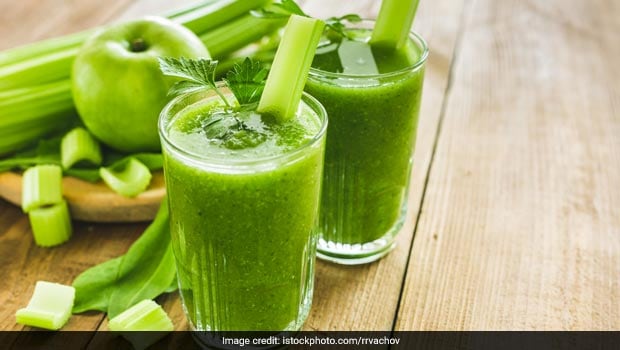Health trends may come and go but if there is one thing that is constantly on our minds, it is weight loss. Losing weight is almost like an obsession in today's day, fuelled by social media's expectations and Bollywood's portrayal of perfect bodies. It seems that we are always trying to fit in the measurements of the next ideal body prototype. Weight loss in itself is not the culprit here; it is the starving and excessive diet culture that is to be feared. A general conception that all food comes with a number of calories and that number is always to be kept in check is what makes some diet routines harmful. However, if you are embarking on your weight loss journey and do not want to be trapped in this number game, we suggest you try negative-calorie foods.
For the unversed, the theory about negative calorie foods is that you can have these foods in as much quantity as you want without any weight gain, because digesting these foods may take up more calories than what they actually contain, thereby, nullifying the addition of calories.
(Also read: Want To Get Lean And Fit? Eat Negative Calorie Veggies Like Yami Gautam)
According to Chief Nutritionist Priya Bharma, Sri Balaji Action Medical Institute, "We always presume that negative means being bad or substandard but, in this case, this is just the opposite as food that contains negative calories can help you lose weight without destroying the number of calories that your body needs to perform the tasks in day-to-day life." So there you go, you can chomp on these food items without worrying about the number of calories they contain. If the idea of negative calorie foods interests you, here are 5 foods that you may include in your upcoming summer weight loss diet.
5 Negative Calorie Foods To Include In Your Diet:
1. Celery:
Containing barely 16 calories per 100 grams (as per USDA), celery is ranked high among negative calorie foods. Packed with fibre, celery is also rich in vitamin A, vitamin C, and folate.

2. Carrots:
Carrots contain about 41 calories per 100 grams. They are also low in cholesterol and saturated fats which can work wonders if you happen to be struggling with hypertension issues. Along with being a good source of dietary fibre, carrots are also rich in vitamin A, vitamin C, vitamin K, manganese, and potassium.
(Also read: 5 Low-Cal Cauliflower Soup Recipes For Your Weight Loss Diet)
3. Tomatoes:
This tangy delight contains a minimum of 19 calories per 100 grams. Apart from being a juicy and delicious source of dietary fibre, potassium, and vitamin C, they also contain lycopene, an antioxidant known to protect the skin from harmful UV rays. Tomatoes can also prove effective in lowering your cholesterol levels.

4. Cucumbers:
Cucumbers are full of minerals, vitamins, and electrolytes and are extremely hydrating -16 calories per 100 grams! Yes, our favourite salad veggie is that low on calories. Cucumbers are full of minerals, vitamins, and electrolytes and are extremely hydrating. It is also known as the classic cooling food which helps maintain the body's water balance on hot days.
(Also read: Orange For Weight Loss: 4 Drinks With Orange Juice That May Work Wonders For Your Diet)
5. Watermelons:
Watermelons are also rich in lycopene which can help protect the heart. Another summer favourite, watermelons contain 30 calories per 100 grams. Watermelons are also rich in lycopene which can help protect the heart. The citrulline in the rind and the flesh of watermelon can also ensure smooth blood flow and enhanced immunity.

Renowned Bangalore-based Nutritionist, Dr. Anju Sood also adds, "High fibre foods or those that have a low glycemic index can be called as negative calorie foods. High-fibre foods fulfill two purposes. Our body takes longer to flush out fibre from the body, hence they stay in the body and delay hunger. And secondly, these zero calorie foods release sugar slowly and so, the incidence of it turning into fat is low."
Disclaimer: This content including advice provides generic information only. It is in no way a substitute for a qualified medical opinion. Always consult a specialist or your own doctor for more information. NDTV does not claim responsibility for this information.








